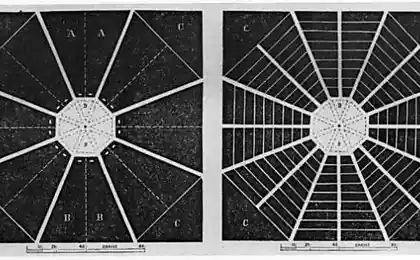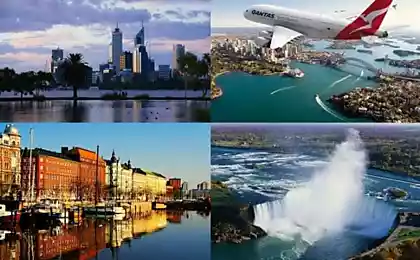217
How life in the city affects our psyche

Modern urban jungles are not just concrete boxes filled with noise, light and technology. The city is a complex organism that can influence mood, habits, interpersonal relationships and the general psychological state of a person. In the cramped neighborhoods of megacities, we face a unique set of factors every day – from dense development and constant rush to a high concentration of cultural heritage and opportunities for self-realization. How does this environment shape our psyche and affect our mental health?

“The city is not just where we live. It is a sound and visual symphony capable of inspiring, tiring, or evoking entirely new feelings. ?
Sound background: from light fuss to constant stress
One of the first factors that catches the eye (or, more precisely, in the ears) is noise. Cars, construction sites, traffic lights, street vendors screaming and music from bars until midnight all create a background noise in which the city dweller dissolves, barely crossing the threshold of the house. Studies show that chronic exposure to increased noise levels can increase stress levels, increase anxiety and reduce sleep quality.
In such an environment, the brain is constantly on high alert. It learns to filter out unnecessary sounds, but this filtering costs us the extra effort. As a result, fatigue accumulates, irritability appears, concentration decreases. A person becomes less patient and receptive to positive signals as their nervous system constantly expends resources to combat noise.
Visual stimulation and architecture: from inspiration to overload
The city is a colorful palette of forms and colors. High-rise buildings, neon signs, graffiti on the walls, the brilliance of showcases and advertising structures form a complex visual landscape. On the one hand, this environment can inspire, encourage creativity, expand our aesthetic horizons. On the other hand, excessive amounts of visual stimuli can overwhelm the psyche.
Megacities with solid concrete walls deprive the eyes of the calm harmony of natural lines and greenery. Research suggests that the presence of parks, ponds, gardens and “green pockets” in the city has a beneficial effect on our psychological state. Nature works as a “reset button” for the brain: contact with the living environment reduces stress, anxiety and helps restore emotional balance.
Social sphere: a lot of people – a lot of opportunities or a lot of loneliness?
Living in a city means daily contact with a huge number of people. At first glance, this looks like the ideal environment for enriching social experiences. We can join thematic clubs, attend master classes, go to concerts and exhibitions. There is no shortage of communication here - whether in a coffee shop around the corner or in multi-disciplinary coworking.
However, many people in the city feel more lonely than in the countryside. Paradoxically, the constant push, lack of time for deep conversations, superficial contacts with neighbors and colleagues – all this sometimes gives rise to a feeling of isolation. Short, insignificant interactions with strangers do not fill the emotional void, and running around without noticing others becomes the norm.
Social connections in megacities often become fragmentary: many acquaintances, few friends, many contacts on the phone, but a lack of quality relationships. As a result, the risk of depression, anxiety disorders and the feeling that despite the crowds around you, no one needs you.
Building density and psychological pressure
Living in small apartments, crowded public transport, limited personal space - another stressor. Long stay in cramped rooms, especially if they are decorated without taking into account psychological harmony, can contribute to a feeling of suffocation and anxiety. A person needs a certain level of comfort and privacy, and urban development often limits this resource.
Balance and survival strategies in an urban environment
Despite these pressures, living in the city provides many opportunities to improve psychological well-being. The metropolis is a center of cultural diversity, innovation and creativity. It is here that you can find a psychologist, therapeutic groups, wellness programs, yoga and meditation courses that will help you cope with stress.
It is worth consciously approaching the choice of area for living: to look for a balance between busy central streets and quieter areas where there is access to parks and squares. It’s important to create “islands of silence” in your daily routine, practice digital detox, and make time to meet people who are really close in spirit.
“To live in a city is the art of finding a balance between motley bustle and quiet corners, between endless contacts and rare but sincere friendships. ?
Bottom line: metropolis as a test and resource
The urban environment can have an ambiguous effect on the psyche. On the one hand, it creates conditions for the development of creativity, enrichment of horizons and the formation of tolerance for diversity. On the other hand, it imposes noise, chaos and anonymity, which can undermine emotional balance and lead to stress.
The main conclusion is that conscious interaction with the city is the key to psychological well-being. If we learn to see the city as a flexible tool for development, rather than a rigid framework, we can make the most of its resources. In the end, it is our own adaptation strategies, our ability to create a comfortable environment and make choices in favor of emotional health that determine whether the city will be a source of inspiration or constant stress.
Observe etiquette: how to spend the perfect date in a coffee shop
What distinguishes sexy guys from those women think are cute























